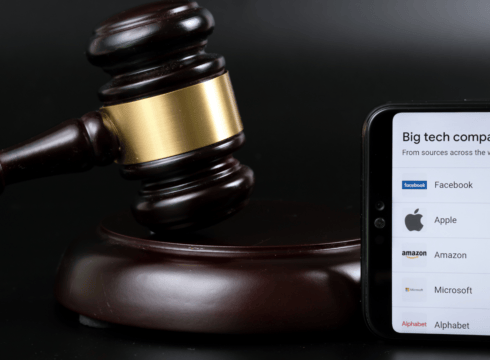IAMAI’s views on digital competition law seem to be favouring big tech companies and not the interest of startups in India, said an Indian startup founder
Indian startups spar against IAMAI and write to the Committee on Digital Competition Law to raise issues plaguing the ecosystem
IAMAI has said that the Parliamentary Panel’s December 2022 recommendations could stifle innovation and competition
Inc42 Daily Brief
Stay Ahead With Daily News & Analysis on India’s Tech & Startup Economy
The submissions of the Internet and Mobile Association of India (IAMAI) to a competition panel, CDCL, have triggered infighting within the industry body. Member startups, based out of India, plan to oppose the recommendations saying it favours big tech platforms.
At the centre of the fracas is a recently drafted note by the association, which criticises the Parliamentary Standing Committee on Finance’s December 2022 report on anti-competitive practices employed by tech giants.
Sources told The Economic Times that the startups believe that the submissions are batting for big tech players and plan to write to the Committee on Digital Competition Law (CDCL) to flag these issues.
“The views on digital competition law prepared by the IAMAI seem to be favouring big tech companies, and not the interest of startups in India… Some of the startups are planning to meet over the next few days to prepare a communication opposing IAMAI’s views,” said the founder of an Indian startup.
Constituted earlier this year, the CDCL has been tasked with examining the need for a new competition law and also possibly look at drafting the Digital Competition Act.
It is pertinent to note that IAMAI is the umbrella body for a host of Indian startups and other big tech players operating in India such as Google, Meta, Microsoft, Paytm, Ola, PhonePe, among others.
Meanwhile, the industry body has directed its members to file their responses on the draft note by May 1.
Inc42 tried reaching out to IAMAI for comment but to no avail.
What Has Irked Indian Startups?
Citing it as broad, the recently circulated draft note among IAMAI’s members has said the Parliamentary panel’s recommendations could stifle innovation and competition in the country.
“Lack of a well-articulated policy objective, failure to adopt an evidence-based approach to identify the need for the regulation, has led to ambiguous, broad recommendations which will stifle innovation, competition and the benefit that accrues to markets and users,” the IAMAI noted.
The draft submissions, seen by Inc42, also claimed that the current regulatory framework provided ‘ample room’ for the competition watchdog (CCI) to intervene swiftly without ‘over-regulating’ the tech sector.
It added that another regulatory regime, ‘which departs from the well-tested foundation of competition law’, was unnecessary and could cause significant harm.
IAMAI cautioned the CDCL against creating a pre-emptive standard under law, citing that the approach was prone to errors due to ‘uncertainty associated with the occurrence and stability of a market tipping point’.
In essence, IAMAI was lashing out at the ex-ante approach cited by the Parliamentary Committee in its December 2022 report. Ex-ante norms aim to prevent anti-competitive behaviour, even before they happen.
The industry body added that such pre-emptive rules, along with rigid and size-based designation mechanisms, could have an ‘adverse impact’ on consumer choice, innovation and investments trickling into the country.
The biggest bone of contention, however, appears to be IAMAI’s stance on the Standing Committee’s suggestion of identifying the small number of ‘market winners’ that can negatively influence competitive conduct in the digital ecosystem.
Noting that such a move lacked clarity and an ‘evidence-based approach’, the draft said that it would ultimately impact consumer interest and distort competition in favour of less efficient players.
Another Flashpoint Erupts
This marks another flashpoint between Indian startups and big tech companies. The confrontation between the two sides comes at a time when a group of Indian startups have dragged Google to multiple courts over its user choice billing policy.
The very contention of Indian startups is that the tech major could allegedly abuse its dominance in the app marketplace model to charge 11-26% commissions from developers, despite routing transactions through third-party payment processors.
Indian startups have also made no qualms about love lost with Google. While Shaadi.com CEO Anupam Mittal called Google the Digital East India Company, Matrimony.com’s Murugavel Janakiraman termed Google a threat to Indian startups.
The US-based big techs are facing a lot of regulatory heat in India. The matters came to blows last year after a Parliamentary panel called for reigning in such companies and sought to give more teeth to the CCI to curb the dominance of such players. It also called for building a new regulatory framework that would strengthen anti-competitive guardrails in the country and make these players accountable.
Afterwards, a slew of advocacy groups, comprising these big tech players, panned the Parliamentary committee report and called it prescriptive, absolutist and regressive in nature.
Additionally, the industry bodies said that any additional regulatory regime would dampen innovation and investments flowing into the country
Despite the headwinds, the country continues to be a lucrative market for these players on account of a growing number of Indians adopting the internet, including the size of the homegrown digital economy.
{{#name}}{{name}}{{/name}}{{^name}}-{{/name}}
{{#description}}{{description}}...{{/description}}{{^description}}-{{/description}}
Note: We at Inc42 take our ethics very seriously. More information about it can be found here.


